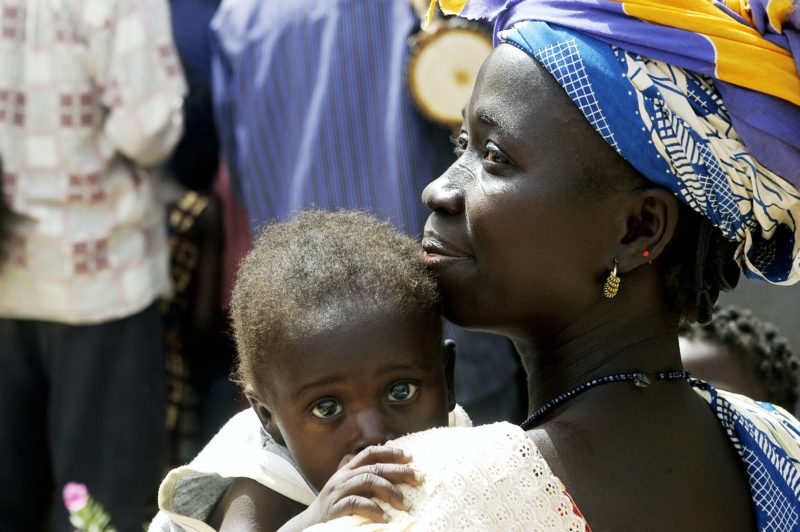The Inclusive Governance for Resilience program to restore trust, effective communication and reliability for service-delivery amongst government, citizens and groups. Um novo período de cinco anos nos EUA. O programa governamental procura reconstruir a comunicação e a confiança dos residentes de Burkina Faso nas instituições governamentais, o que acabará por reduzir a proliferação de violência externa.grupos remistas no país.

Financiado peloNÓS. Agência para o Desenvolvimento Internacional, o quase $20 prêmio de um milhão apoiará o novoPrograma de Governança Inclusiva para Resiliência. O programa trabalhará com o governo, sociedade civil, sector privado e os cidadãos para co-criarem roteiros para construir resiliência e confiança na prestação de serviços pelo governo. Será implementado por Criativos associados internacionais em parceria com Ajuda Mundial Luterana.
Leland Kruvant, Presidente e CEO da Creative, sublinha que os intervenientes e as instituições locais são fundamentais para o sucesso do novo programa.
“Fomentando a liderança local, encorajar a aprendizagem contínua e a partilha de experiências relacionadas provaram ser parte de uma solução vencedora para comunidades em risco e em dificuldades,”diz Kruvant.
Uma ferramenta fundamental é o inovador da CreativeFragilidade e Metodologia de Avaliação de Resiliência (comumente chamadoQuadro®), qualé uma ferramenta de mapeamento que identifica as fontes que enfraquecema relação cidadão-estadop e acesso aos recursos da comunidade. Por outro lado, Quadro ilumina a resiliência nas comunidades, proporcionando oportunidades para desenvolver locais onde a relação cidadão-Estado é mais forte.
DéboraKimble, Diretor deCriativosDemocracia, Governança e EletricidadetoralIntegridade'Área de Prática, diz tele parcerias dinâmicasentre instituições estatais, atores não estatais locais, ecívicoinstituiçõesé fundamental paratransformaring relacionamentos e construiring odemocrático governação e capital social necessários para restaurar a coesão e a confiança e, ao mesmo tempo, combater o extremismo violento.
Os intervenientes locais contribuirão significativamente para oGovernança Inclusiva para Resiliência programa porassumindofunções de liderança, enquanto recebe orientação e supervisão da Creative. Os líderes locais também facilitarão workshops com Comités de Desenvolvimento da Aldeia e outros grupos para discutir estratégias construtivas de advocacia., em vez de abordagens passivas ou violentas para agitar o governo em busca de serviços. O programa busca restaurar a confiança, comunicação eficaz, e interesse e responsabilidade coletivos em assuntos e serviços governamentais.
Desafios Locais
A violência continua em todo o Burkina Faso devido ao conflito entre o governo, cidadãos, grupos de autodefesa e grupos extremistas violentos. O governoprocurado voluntários para combater extremistas violentos, o que aumentou ainda mais a violência local e causou maior divisão social.
A partir de agosto 2020, violência deslocou mais de 1 milhão de pessoas, particularmente no Sahel, Centro Norte, Regiões Leste e Norte.
O Sahel é mais afetado por ataques de grupos armados e de vigilantes como Koglweogo, que agravou o conflito na área. A violência é agravada pela desconfiança no governo devido à má qualidade dos serviços e infra-estruturas, como escolas e centros de saúde..
No Centro-Norte, há um conflito de longa data entre comunidades agrícolas e pastores devido à limitada terra disponível. Na Região Leste, os residentes sentiram-se abandonados pelo governo devido ao acesso limitado à água e à electricidade, aumentando as tensões e a desconfiança.
Nord tem a maior taxa de pobreza do país, com 7 fora de 10 pessoas que vivem abaixo da linha da pobreza e sofrem de insegurança alimentar. A violência eclodiu na região, visando instituições estatais, bem como comunidades minoritárias e cristãos.
OGovernança Inclusiva para Resiliência a análise e o plano para a paz e a coesão serão diferentes para cada região, dependendo das necessidades, desafios únicos, dinâmica social e de poder e abertura ao investimento do sector privado.
Um período inicial de seis meses permitirá que a Creative e a USAID decidam sobre as prioridades e os próximos passos para o programa governamental de cinco anos. Durante este períodode, O criativo conduziráuma análise de economia política, reunir cidadãos’ insights através Quadro, eavaliar a capacidade do administrador da comunaautoridades e sociedade civilorganizações, abordar factores que contrariam a paz e a reforma e aplicar esses dados para criar um roteiro para a coesão e a resiliência.